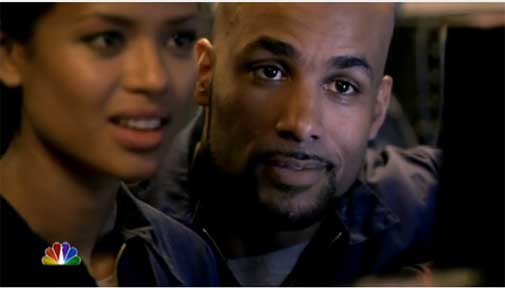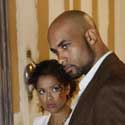
The conversation still is vivid in my mind.
CBS had just previewed Scarecrow and Mrs. King for television critics from across the country and the hour-long drama looked as though it would be popular.
My own campaign, though not personal, was nonetheless persistent. The time was 1983, and African American actors still were pushed to the margins when television networks looked to fill leading dramatic roles. The reasons, though, seemed flimsy...
Television executives always were "looking for the right fit," or awaiting the "development" of African Americans who could carry a dramatic lead. Never mind the overwhelming success of theater groups, notably the Negro Ensemble Company, which perennially produced excellent actors. Ossie Davis and Ruby Dee weren't good enough, I guess.
After a couple of days of jousting with execs over the nettlesome matter of American TV that didn't look much like America, I chose Scarecrow and Mrs. King to stake my claim.
You'll need a bit of background.
Amanda King was a single, suburban homemaker played by Kate Jackson, who already had won TV audiences through her role as one of Charlie's Angels.
The Scarecrow was the spy code name for Bruce Boxleitner, who, after portraying the TV version of Frank Buck in Bring 'Em Back Alive, was so damned telegenic that he would have been cast in just about anything to jack up the Q ratings.
Mrs. King developed a crush on the Scarecrow, and the two worked together on espionage missions.
In the midst of that feel-good, "OMG are they ever hot!" moment, I asked about roles for minorities, and after a couple of modest stiff-arms from the CBS, I lobbed this question: Why couldn't the Scarecrow be black?
He was nearly apoplectic.
"The Scarecrow couldn't possibly be black," he said.
I knew just enough about television to know that if the top execs say it will happen, it happens.
Why not?
"Well, for creative reasons," I was told. And the debate ended there.
OK, flash forward 27 years to Wednesday prime time on NBC, where Undercovers shows us that spies come in all colors.
Boris Kodjoe is Steven Bloom, and Gugu Mbatha-Raw is his wife, Samantha. They are a stunningly beautiful couple (think Stephanie Powers and Robert Wagner in Hart to Hart) who have everything going for them. They shoot straight, fight hard, run fast, jump high and love each other deeply. This formula would make reasonably good television in any culture.
 We've seen Kodjoe in Tyler Perry's Madea's Family Vacation and Soul Food, among other credits. Mbatha-Raw's role in Doctor Who gave her a step toward derring-do.
We've seen Kodjoe in Tyler Perry's Madea's Family Vacation and Soul Food, among other credits. Mbatha-Raw's role in Doctor Who gave her a step toward derring-do.
The couple they play were two of the best spies the Central Intelligence Agency ever produced. They fell in love, married and retired from the company. And just when they thought all was safe, both were sucked back into active service.
Never mind that the dramatic series, with its tongue-in-cheek flourishes, does not threaten Mad Men or Breaking Bad for Emmy cred. The lead characters are just too good looking to be ignored (remember Boxleitner?).
I'm not privy to the NBC strategy. Maybe the network is aiming directly at moving the multicultural ratings needle over a bit from TBS. Maybe Undercovers won't survive; it is light, in spite of the rough-and-tumble scenes the couple execute.
I plan to enjoy the run, sit back with my feet up, and chuckle at my feeble attempt to argue for diverse casts in prime-time dramas nearly 30 years ago.
Time passes. Times change.